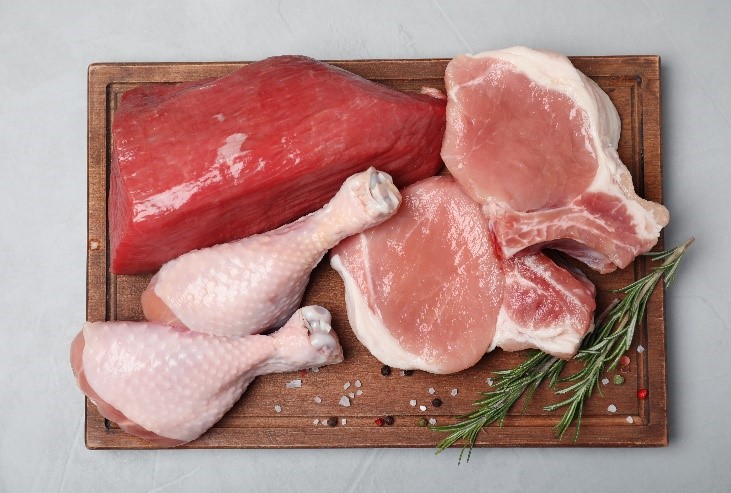Does washing foods make them safer?
Follow these recommendations for safely handling certain types of foods.

Our kitchens are full of tools and equipment that make preparing food fun and easy. We know it is important to keep our kitchens clean, but what about cleaning our food? According to the United States Department of Agriculture (USDA) Food Safety Inspection Service, there are specific methods for safely handling certain types of foods.
Washing produce:
- To remove dirt and reduce bacteria on fresh fruits and vegetables, rinse under cold running water.
- For fruits and vegetables with firm skin, scrub the outside with a clean vegetable brush.
- The S. Food and Drug Administration does not advise washing fruit and vegetables with detergent or soap. Residues from these chemicals can permeate into the product, which could cause illness.
- Pre-washed or ready to eat produce that says “no further washing necessary” on the package does not need to be washed again.
Washing eggs:
- Washing commercial eggs is not necessary. Commercial washing process uses a food grade mineral oil that adds protection from bacteria.
- Extra washing can increase the chance of cross-contamination.
- To clean farm fresh eggs, dip the fresh eggs in very warm, not hot water and lightly wipe them clean, rinse, gently dry and refrigerate
Washing meat and poultry:

- Washing meat and poultry before cooking is no longer recommended.
- Washing raw poultry, beef, pork, lamb or veal before cooking does not remove all types of bacteria.
- Cross-contamination of utensils and other foods can happen from meat juices splashing onto kitchen surfaces, also increasing the risk of foodborne illness.
- Cooking food to the safe temperatures using a food thermometer will kill bacteria.
Following these steps as outlined by the USDA Food Safety Inspection Service will help to avoid cross contamination and food borne illness caused by mishandling of your fresh foods. Most fresh produce, including those pre-packaged and pre-cut, should be stored in a clean refrigerator at 40 degrees Fahrenheit or below.
Keep your fresh produce separate from raw meat, poultry and seafood to avoid cross contamination. Remember to wash any food contact surfaces such as counter tops and kitchen equipment with hot soapy water before and after preparing each food item and always wash your hands before and after handling food.
If you have specific questions related to your situation, you can browse Michigan State University Extension, Ask an Expert or call the MSU’s Food Safety Hotline at 877-643-9882.



 Print
Print Email
Email
